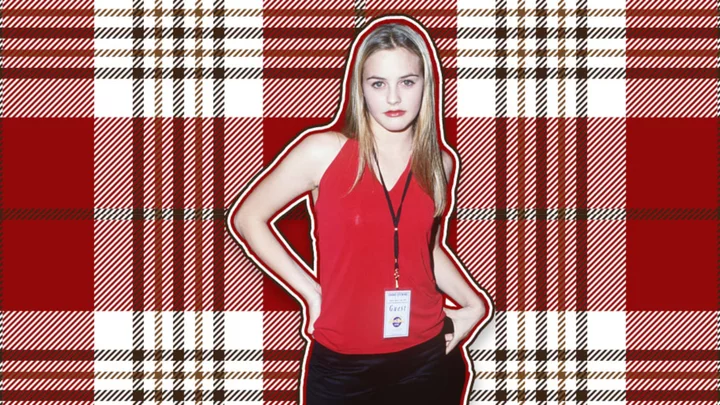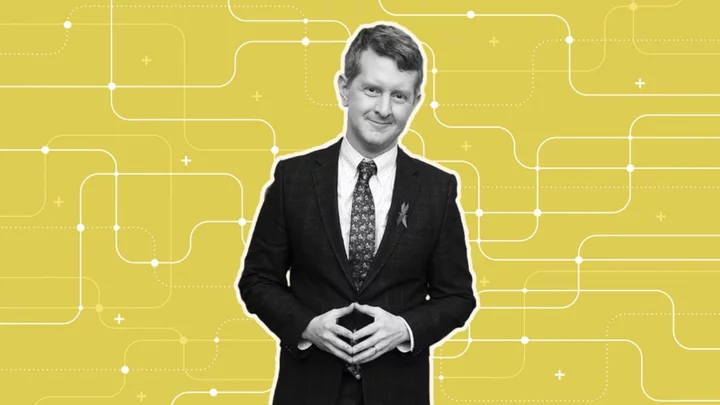First lady Dr. Jill Biden's positive Covid-19 test does not appear to portend a major return to pandemic-era protocols at the White House, a reflection of how the virus' threat has receded since the early days of the administration even as cases begin to rise.
"We just have to understand: This is Covid. It's going to do this," said Dr. Ashish Jha, who served as coordinator of the Biden administration's Covid response team until June. "We're probably going to get a winter wave. ... I promise you we'll get something next summer, and we'll get something the winter after that."
Despite an uptick in cases and some high-profile positive tests that partly upended a long stretch of relative normalcy at the White House, overall incidents remain significantly lower than the last time the president and first lady tested positive for the virus last summer.
For President Joe Biden, who entered office as Covid was raging and vaccines had just become available, combating the virus and overseeing a return to normalcy has amounted to a key accomplishment.
The path out of the pandemic hasn't always been straightforward. After Biden declared "freedom from the virus" in July 2021, the country was hit by the Delta variant in the late summer and early fall. A winter surge driven by the Omicron variant prompted a renewal of masking and work-from-home guidelines. And the pandemic's lingering economic effects remain a challenge for the White House as Biden seeks reelection.
But for the past year, the country has mostly shaken off the vestiges of the pandemic era, including at the White House. Masks are no longer required or ubiquitous, social distancing has been retired and few employees work from home. Biden does not regularly deliver speeches about the virus or hold events dedicated to pandemic response.
After the first lady's test, the White House said she would remain at home in Rehoboth Beach, Delaware, for the week -- missing the first day of her teaching schedule at a Washington, DC, area community college.
The president tested negative in two separate tests on Monday and Tuesday, and in a return to his practice from earlier in the administration, began wearing a mask indoors when in close proximity to others.
Otherwise, however, work proceeded as usual. Offices in the West Wing remain full. A Medal of Honor ceremony for an 81-year-old Vietnam War veteran in a crowded East Room continued as scheduled — albeit with Biden wearing a mask as he entered (he later removed it during the ceremony, including when standing in close proximity to the recipient). And plans to travel to India on Thursday for the Group of 20 summit were unchanged — even as officials acknowledged they'd gotten accustomed to making alternative arrangements.
"We have long experience, from the early days of the administration, in managing for situations in which Covid plays a role in summits," national security adviser Jake Sullivan said Tuesday.
Testing requirements are still in place for those in close proximity to the president and passengers aboard Air Force One, including for the upcoming trip to India. But the stringent monitoring that prevailed in the early days of the administration has eased significantly.
"We know that we have made historic progress in this nation in the ability to manage Covid in a way that's no longer meaningfully disrupting our daily lives, and that is because of the work that this president has done and the work that this administration has done. We actually believe we are in a better place than we have ever been to deal with Covid," White House press secretary Karine Jean-Pierre said Tuesday.
She said Biden would continue taking tests at a "regular cadence" determined by his physician and noted the US Centers for Disease Control and Prevention doesn't recommend daily tests for those considered close contacts of those who have tested positive.
Part of the reason for the strict protocols around the president early in the administration was Biden's advanced age, which put him at greater risk for complications from Covid. He weathered a bout with the virus last summer, enduring with only mild symptoms like a runny nose, body aches and fatigue.
As the virus waned, the White House steadily ramped down the response team dedicated to coordinating the federal response. Its coordinator Jha departed the White House in June, and responsibility for the pandemic transferred to a new Office of Pandemic Preparedness and Response Policy.
"Covid remains a challenge. Covid is no longer the threat it was in 2020 or 2021 or even when I came on in March 2022," Jha told CNN. "While it is a challenge, it represents a different challenge than it did, and we have an office that can handle that."
CDC data from earlier in the summer showed a slight increase in hospital admissions, emergency department visits and positive Covid-19 tests -- although not nearly as high as in past summers.
Overall, there were about four new hospital admissions for every 100,000 people nationwide in the week ending August 19, which is considered low, according to CDC thresholds. Seven counties had high levels of Covid-19 hospitalizations. But 117 counties — about 3.6% of the country — were in the medium threshold. About a quarter of those counties were in Florida.
The White House has pointed to mid-September as the target for new Covid boosters. Major vaccine makers have developed shots that will target a new strain of the virus.
Jean-Pierre said Tuesday that the president and first lady would both receive the new Covid booster when its available.









